 Petzlover
Petzlover Oriental Longhair is originated from United Kingdom but Siamese is originated from Thailand. Both Oriental Longhair and Siamese are having almost same weight. Oriental Longhair may live 5 years less than Siamese. Both Oriental Longhair and Siamese has same litter size. Oriental Longhair requires Moderate Maintenance. But Siamese requires Low Maintenance
Oriental Longhair is originated from United Kingdom but Siamese is originated from Thailand. Both Oriental Longhair and Siamese are having almost same weight. Oriental Longhair may live 5 years less than Siamese. Both Oriental Longhair and Siamese has same litter size. Oriental Longhair requires Moderate Maintenance. But Siamese requires Low Maintenance
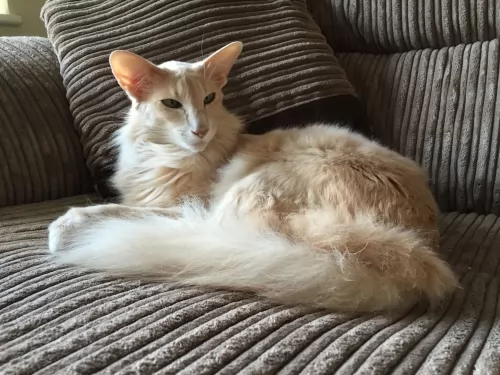 Your Oriental Longhair cat has his foundations in the Siamese breed. The Siamese came from Thailand to the UK in the 1800s.
Your Oriental Longhair cat has his foundations in the Siamese breed. The Siamese came from Thailand to the UK in the 1800s.
Sometimes a litter of Siamese kittens produced a long-haired variety but in the 1950s breeders started honing in on these longer haired Siamese cats.
Various crossings took place and Oriental Shorthairs came about. By breeding these Shorthairs with Balinese cats, the Oriental Longhair came about in the 1970s.
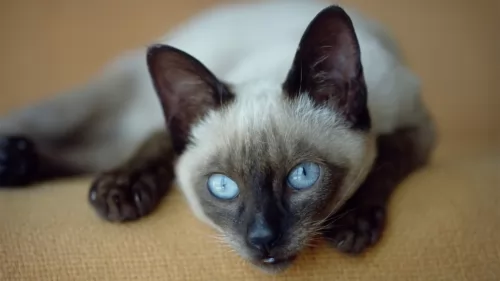 The Siamese cat is one of the most recognized cat breeds there are. The cat hails from Thailand and is the foundation stock for a number of other breeds.
The Siamese cat is one of the most recognized cat breeds there are. The cat hails from Thailand and is the foundation stock for a number of other breeds.
It comes in two distinct variations - traditional and the more modern Siamese.
In the United States, most of the top cat registries only consider the 4 original fur colors as Siamese – chocolate point, seal point, blue point, and lilac point.
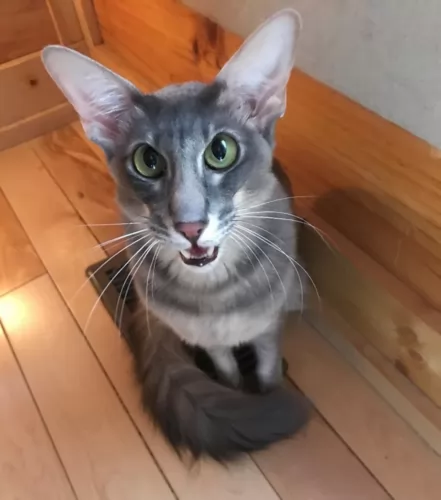 The Oriental Longhair is a medium-sized cat with a fairly long, muscular, lean body. The Oriental Longhair actually resembles the Siamese cat.
The Oriental Longhair is a medium-sized cat with a fairly long, muscular, lean body. The Oriental Longhair actually resembles the Siamese cat.
They also come in an outstanding array of colors and patterns with the coat being long and silky. The coat can be a solid color but you can also find tabby-type coats as well as tipped coats. The cat doesn’t have an undercoat and coat lies fairly flat against the body. You will also hear it being referred to as a semi-longhair.
The tail is attractive and forms quite a bushy plume.
The Oriental Longhair cat has almond-shaped green eyes. If you see the white Orientals, they can have green or blue eyes. They can also be odd-eyed.
These cats are intelligent, curious, and good-natured and they love to talk. Therefore it is important that such a cat breed have a home where there is plenty of company.
They’re active cats too, loving to play and bound and leap. He'll want to willingly join in with some of your games. The cat will certainly need some exciting toys to keep him occupied.
They are loyal cats and become loving and devoted to their human family, getting on well with children in the home as well as other pets.
They don’t like being left alone at all and will prefer to have company, even if it is from another pet.
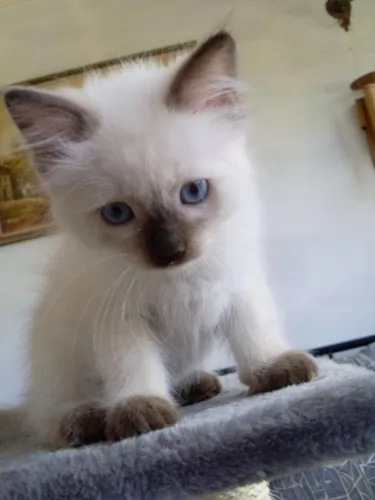 The Siamese cat is a medium-sized cat. Today’s Siamese cat is recognized by the triangular-shaped head, the slender, muscular body, the blue almond-shaped eyes, the largish ears, and the cream point colored coat.
The Siamese cat is a medium-sized cat. Today’s Siamese cat is recognized by the triangular-shaped head, the slender, muscular body, the blue almond-shaped eyes, the largish ears, and the cream point colored coat.
The face of the Siamese also has a mask of the same point color. Weighing at between 3 – 5kg, the Siamese has a long neck and slender tail.
All Siamese kittens are cream or white at birth, but they develop visible points in the first few months of life. The coat is short and glossy. By the time the kitten is 4 weeks old, the points are clearly distinguishable.
Siamese are affectionate, curious, playful, intelligent cats and are known for their vocal, social natures.
With the Siamese cat, you may see him bonding strongly with one particular person in the family.
They’re active cats and are also one of these cat breeds that are described as being more dog-like. Some of them become so attached to their human owners that they can become depressed or suffer from separation anxiety when left alone for long periods of time.
Because of the cat’s intelligence, he can be easily trained to respond to simple commands.
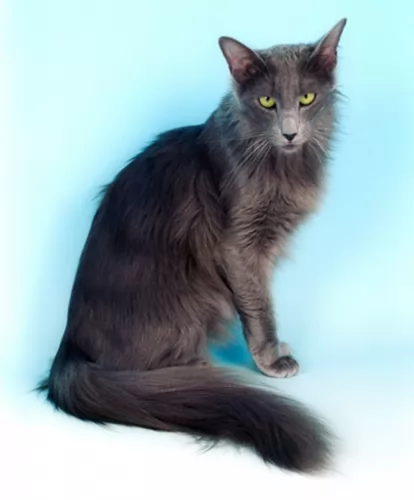 Your Oriental Longhair is such a friendly, lively cat and he makes a splendid companion. It is an inquisitive cat and likes to be part of the activity in the household.
Your Oriental Longhair is such a friendly, lively cat and he makes a splendid companion. It is an inquisitive cat and likes to be part of the activity in the household.
He is a social, talkative cat and has always got a lot to say/ They love the attention of their human family and don’t like being separated too long from them.
When you get one of these cats, you get both an entertainer and a friend.
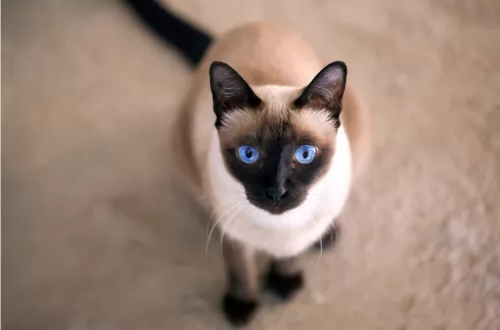 The Siamese cat is such a popular breed and with good reason. It makes a splendid companion for single people, families, couples, and older people. It gets on well with children and other pets too.
The Siamese cat is such a popular breed and with good reason. It makes a splendid companion for single people, families, couples, and older people. It gets on well with children and other pets too.
However, it is an energetic cat and won’t relish lying around day after day. He will want you to play with him and exercise him too, providing him with a stimulating environment.
These are such affectionate cats too, that it will be too sad if he lands up in a home where people don’t provide him with love and care. In exchange for that, you couldn’t ask for a better companion and friend.
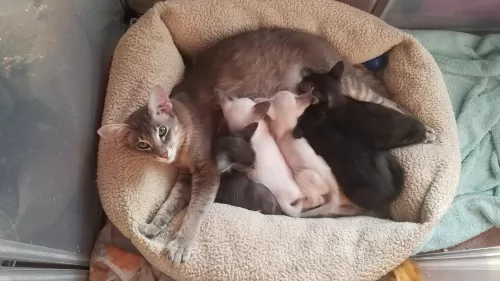 The Oriental Longhair is generally considered a healthy breed. Because the cat can be prone to some inherited conditions, it is always a wise move to buy a kitten from a reputable breeder.
The Oriental Longhair is generally considered a healthy breed. Because the cat can be prone to some inherited conditions, it is always a wise move to buy a kitten from a reputable breeder.
A couple of these diseases to look out for include Progressive Retinol Atrophy which is a degenerative condition that can lead to blindness.
Also, look out for periodontal disease which is common in many cat breeds.
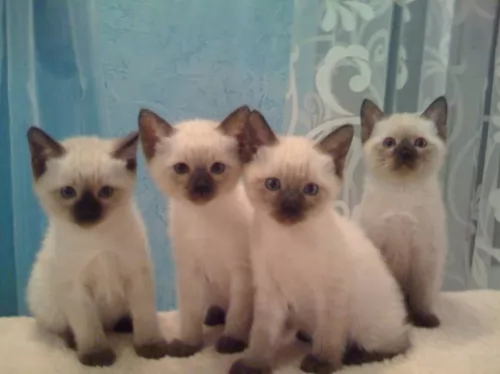 With good care, your Siamese cat can live to be between 12 and 20 years of age. It is a slim cat, so you want to keep him that way as becoming overweight can put a whole lot of pressure on the cat’s joints and bring on other health issues.
With good care, your Siamese cat can live to be between 12 and 20 years of age. It is a slim cat, so you want to keep him that way as becoming overweight can put a whole lot of pressure on the cat’s joints and bring on other health issues.
There are always some common cat diseases to watch out for and one of these is mammary tumors. They also battle with gastrointestinal problems and lung infections.
They are actually prone to respiratory problems, but this is more seen in younger cats. Upper respiratory infection with the Siamese cat will usually last about a week or it can go on longer.
Your cat with have a nasal or eye discharge, will be drooling as well as have ulcers around the nose and mouth with aches and pains aa well as lethargy.
Make sure that your Siamese cat is up to date with his vaccinations.
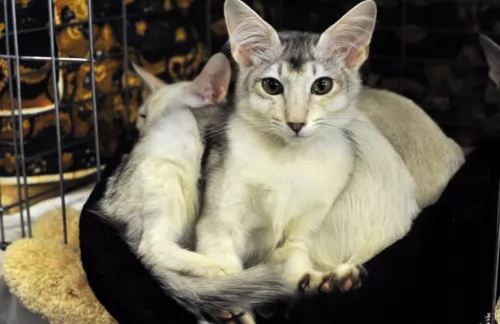 This is a slim cat and you can easily tell when he has put on weight. Be very careful with how much you feed your cat and what you feed him.
This is a slim cat and you can easily tell when he has put on weight. Be very careful with how much you feed your cat and what you feed him.
Cats are carnivores and you need to ensure that his diet is rich in meaty ingredients. These cats have long slim legs and extra weight can put pressure on the cat’s joints. Keep your cat lean and healthy. If in any doubt about diet for your cat, speak to your vet, Always ensure a bowl of fresh, cool water.
Prepare to have a cat included in your family. Invest in food and water bowls, a cat bed, grooming brushes, toys, climbing tree, scratching post and litter box. A cat box for transporting your pet to the vet is also a good idea.
The Oriental Longhair loves to leap up into high areas so he will need a climbing tree. Try to get your cat out into the sunshine where possible and allow him to climb into a tree.
The cat’s medium- to long hair will require brushing once or twice a week. When you brush your pet gently but purposefully, he loves it and it becomes a bonding session.
Provide your cat with a litterbox and make sure to clean out the box every day. You can do that by buying a small plastic rake at the pet shop and it keeps the litter nice and even for your pet.
Have your cat neutered or spayed to prevent unwanted kittens.
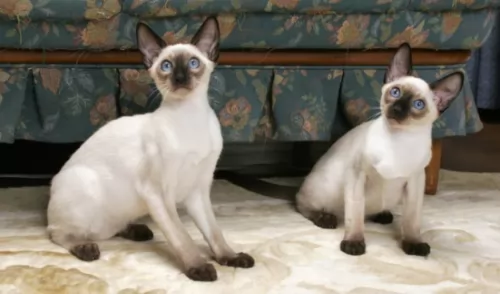 Good diet is one of the most important ways to care for your Siamese cat. Your cat is a carnivore and you therefore need to ensure he gets an appropriate diet otherwise you’re going to be spending more time at the vet with a sick cat than you’d like to.
Good diet is one of the most important ways to care for your Siamese cat. Your cat is a carnivore and you therefore need to ensure he gets an appropriate diet otherwise you’re going to be spending more time at the vet with a sick cat than you’d like to.
Always check with your vet if you have any uncertainties about feeding your Siamese kitten. Kittens will eat different food to an adult, and even in adulthood, there is commercial cat food manufactured for adult cats, pregnant felines, lactating cats, energetic cats, senior cats and sick cats.
Where possible, you will need to try and provide your cat with some fresh, raw meat too.
Never leave your cat without a bowl of fresh, cool water night and day.
The coat of the Siamese cat is thick, soft, and silky and he will require a brush every week to keep it like that.
They are agile, athletic cats, loving to jump up onto perches so it will be a good idea to provide a climbing tree or some other equipment where the cat can leap up onto.
Provide your cat with a litter box and make sure that the cat’s feces are removed every single day.